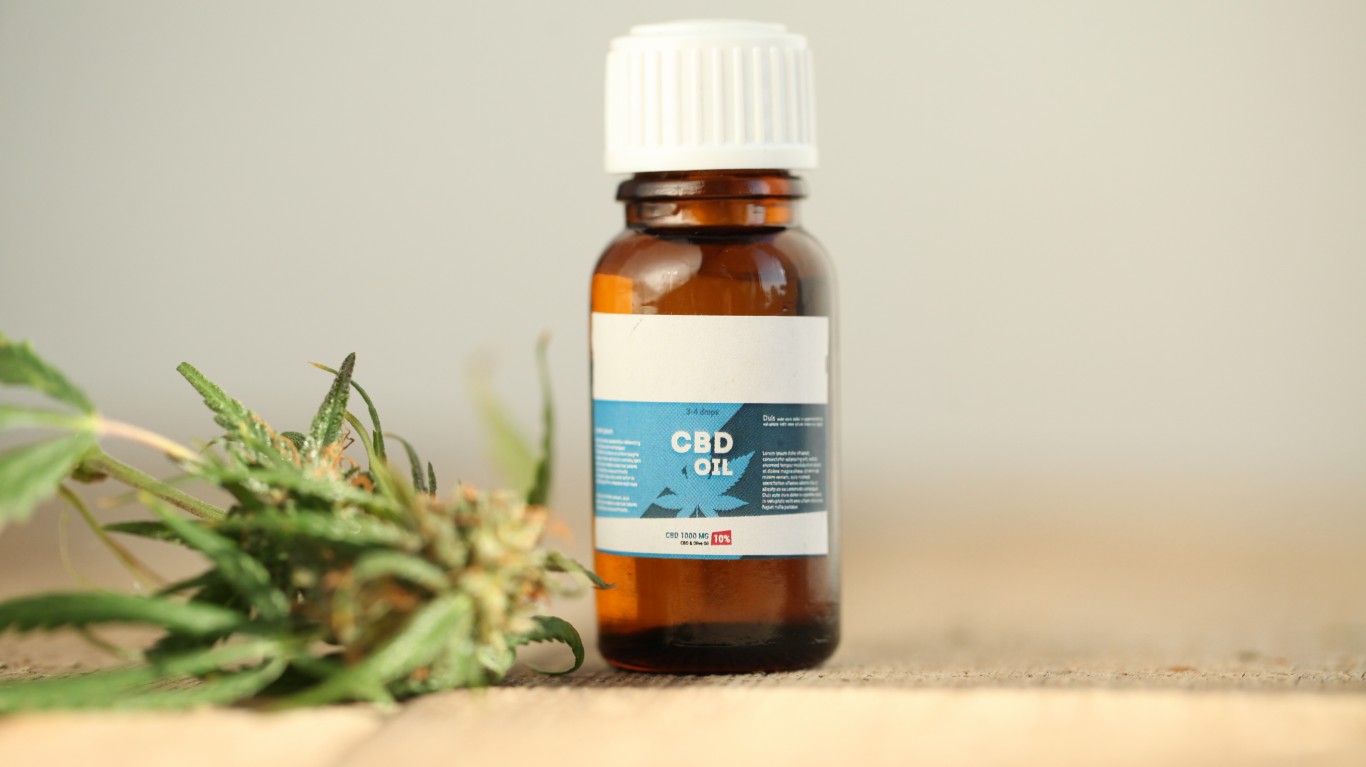Companies and Brands
How the Legality of a Popular Hemp-Based Compound Weighs on Cannabis Stocks

Published:
Last Updated:

When Congress passed the 2018 Farm Bill and the U.S. president signed it in December of that year, hemp was removed from the list of Schedule I drugs that includes heroin, cocaine and marijuana. Products derived from industrial hemp containing less than 0.3% by weight of delta-9 tetrahydrocannabinol (THC) became legal and led to what became known as Cannabis 2.0, the sale of non-psychoactive products derived from industrial hemp.
Last week, the U.S. Drug Enforcement Administration (DEA) published an interim final rule to “codify” regulations related to “tetrahydrocannabinols, and other marihuana-related constituents.” The rule, according to DEA, “merely conforms DEA’s regulations to the statutory amendments to the [Controlled Substances Act] that have already taken effect, and it does not add additional requirements to the regulations.”
The cannabis industry, and its investors, aren’t so sure. At issue now is delta-8 THC, one of hundreds of cannabinoids present in a cannabis plant. Delta-8 THC, unlike delta-9 THC, remains on DEA’s list of controlled substances, and its continued sale and use raises the threat of federal criminal prosecution.
According to Cannabis Business Executive, delta-8 THC “is nowhere near as well known [as delta-9 THC] and has been gaining in popularity over the last year, largely due to its alleged ability to have a substantially different and significantly less intoxicating but still mind-altering effect.”
That “mind-altering effect” may be why products that include delta-8 THC have become increasingly popular among adult users. According to Rob Kight of Kight on Cannabis, delta-8 THC as naturally present in hemp is not a controlled substance. However, because there is so little of the stuff in any hemp plant, delta-8 THC is extracted and consolidated into a cannabidiol (CBD) from which consumer products are then made. Does a product made from the delta-8 THC cannabidiol meet the definition of a product derived from hemp or one derived from a CBD?
That’s where opinions are divided. Is delta-8 THC derived synthetically or naturally? The DEA ruling makes clear that “all synthetically derived tetrahydrocannabinols remain Schedule I controlled substances.” Does “synthetically derived” apply only to drugs like Spice and K2 that contain no marijuana but do contain chemicals that (dangerously) mimic the marijuana high?
Cannabis 2.0 has struggled to gain traction in both the U.S. and Canadian markets. Regulators have been slow to approve retail stores for CBD products and an unclear ruling from the DEA is not helping matters.
Since August 1, nearly three weeks before the DEA published its final rule, Sundial Growers Inc. (NASDAQ: SNDL) has dropped 43%, Aphria Inc. (NASDAQ: APHA) and Cronos Group Inc. (NASDAQ: CRON) have dropped about 15%, Tilray Inc. (NASDAQ: TLRY) has dropped 9%, Aurora Cannabis Inc. (NYSE: ACB) has dropped more than 8% and Canopy Growth Corp. (NYSE: CGC) has dropped about 3%. Since early September of last year, none of these companies even matched its price at that time. All have lost between about a third and 95% of their value over the period.
Until it becomes absolutely clear that the DEA ruling does or does not apply to delta-8 THC, growth prospects for the cannabis industry are muted at best.
If you’re one of the over 4 Million Americans set to retire this year, you may want to pay attention.
Finding a financial advisor who puts your interest first can be the difference between a rich retirement and barely getting by, and today it’s easier than ever. SmartAsset’s free tool matches you with up to three fiduciary financial advisors that serve your area in minutes. Each advisor has been carefully vetted, and must act in your best interests. Start your search now.
Don’t waste another minute; get started right here and help your retirement dreams become a retirement reality.
Thank you for reading! Have some feedback for us?
Contact the 24/7 Wall St. editorial team.